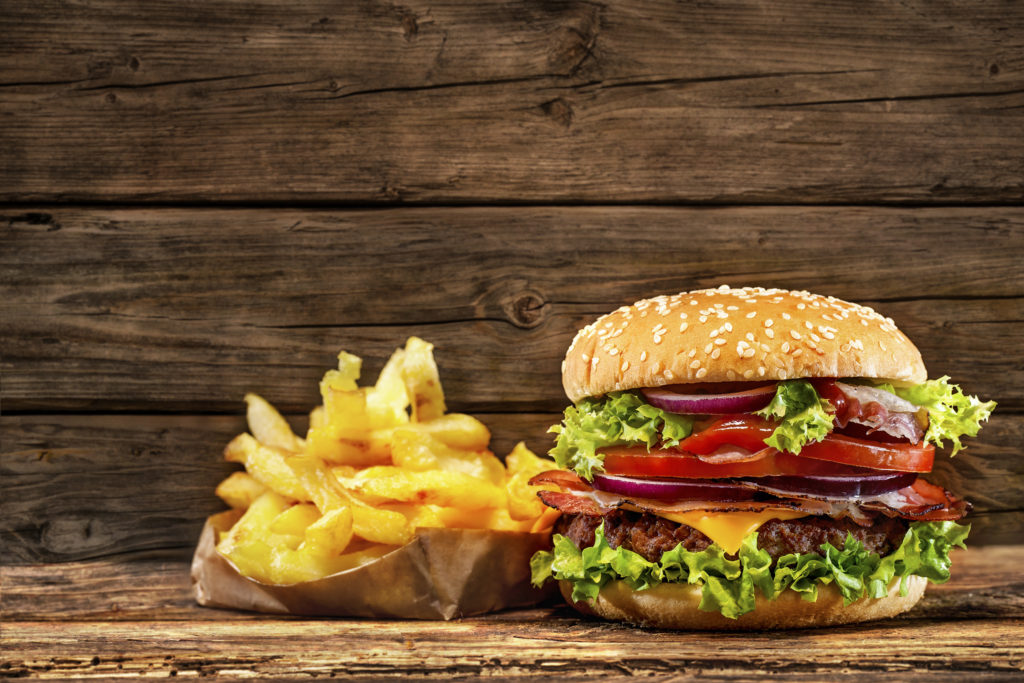
Young people can change their health consciousness compared to Junk Food
In the fight against obesity, researchers are trying to end the health consciousness for decades to find a way to convince Teenagers to consume Junk Food and healthy to feed – but unfortunately so far without success. One of the biggest obstacles is the enormous presence of food ads that teenagers are exposed to every day. These promotional measures should evoke strong positive associations with Junk Food in the minds of young people, in order to promote the consumption. The research has shown that it works.
In a new study by the Booth School of Business at the University of Chicago, it has now been found that a small change in consciousness, young people can offer long-lasting protection from the harmful effects of food advertising.

Changes in the perceptions towards advertising
In the study, the Change in the point of view of a Teenager on the advertising campaigns of the food industry. Young people and particularly young men to be trained to consume a healthier daily diet over a longer period of time. This method works, in part, by responding to the natural desire of the Teenager to rebellion against authority.
The food advertising is deliberately designed, positive emotional associations with Junk Food and bring it with happiness and fun feelings. „One of the most exciting things is that we have brought children to an immediate intestinal response to Junk-Food and Junk-Food-show advertising, and a positive gut reaction to healthy Lebensmittel“, the researchers explain.
The Study
In the study, the Teens read first ads for Junk Food advertising, and then led an action with the name „Make It True“ by that should enhance the presentation of food advertising. The students were given pictures of food advertising on iPads with the instructions, to make these Ads to Display incorrectly in a true convert. This influenced the dei perception of the ads. The researchers found that the impact on the perception of the ads persisted with it for the Rest of the school year. The effects were particularly evident with boys, who in their daily purchases of unhealthy drinks and Snacks in the school canteen, or 31 percent, reduced.
This relatively simple change in the view could show an early sign of a change in health awareness.
Rebellious Teenagers to change their eating habits
To rebel, the appeal to a Teenager, that could improve the General health consciousness in the end and so, with Junk Food companies to compete. These small, cost-effective action seems to be to offer long-lasting protection against the tempting power of Junk-Food advertising, and to change the eating habits for the Better.
In the past, incorrect approaches followed
„Most of the actions in the past, assumed that it is an effective means to warn Teenagers against the negative long-term health consequences of a poor diet to a change in behaviour to motivieren“, the researchers say. This is clearly a problematic assumption, and the main could be the reason why so far no-one Teenager could bring to change your eating habits in a sustainable way.
Study shows new approaches to the promotion of health awareness
The study shows that it is possible to change the behavior during adolescence by a small measure. Adolescence is a stage of development in even the most tedious approaches to health promotion bsiher virtually no effect have shown. Reason many social challenges, from education to risky behavior, whose roots are anchored in the teenage years. This study paves the way for new approaches to the promotion of global health awareness.
Conclusion
The food advertising is deliberately designed, positive emotional associations with the Junk Food to produce in order to happiness and fun feelings to trigger. The study has shown that it is possible for teenagers, the Manipulation of the food industry to present, your natural aversion to control behavior by adults to trigger. The more young people will be made aware of, the greater the change in the health consciousness of a whole Generation. (fm)